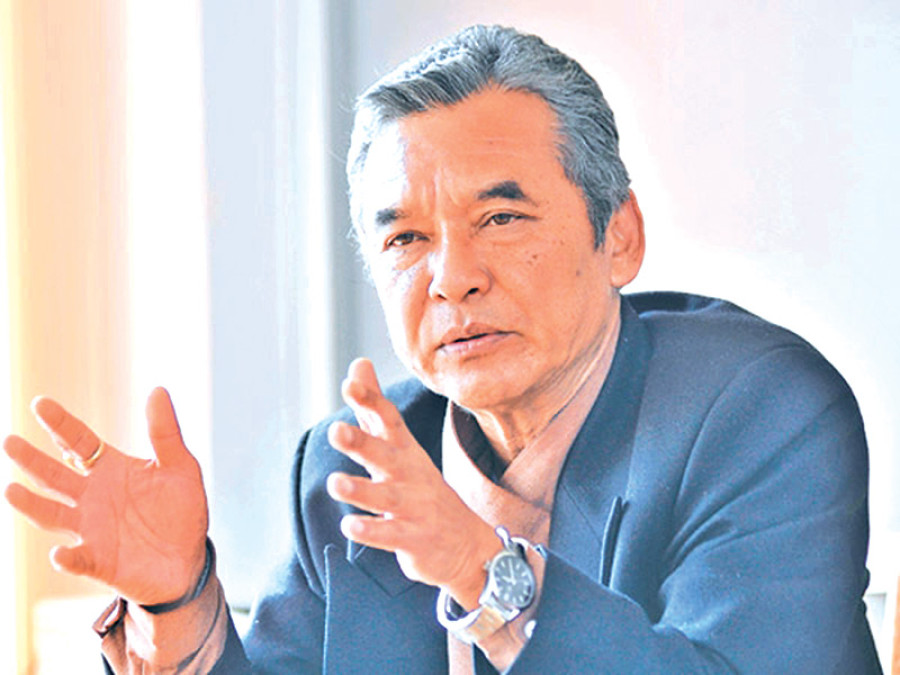Miscellaneous
CIEDP for Rs 2m in compensation
Amid criticism for failing to investigate war-era cases of disappearance, the Commission of Investigation on Enforced Disappeared Persons has proposed Rs2 million for the families of persons who have yet to be traced since they disappeared during the Maoist insurgency.
Binod Ghimire
Amid criticism for failing to investigate war-era cases of disappearance, the Commission of Investigation on Enforced Disappeared Persons has proposed Rs2 million for the families of persons who have yet to be traced since they disappeared during the Maoist insurgency.
The commission has written to the Ministry of Peace and Reconstruction to provide additional compensation to the victims as a measure of reparation. Families of the people disappeared and those killed in the decade-long rebellion have received Rs1 million as compensation in instalments so far.
According to CIEDP member Bijul Biswokarma, the sum of money was recommended as part of a relief package for the victims. The proposal needs Cabinet endorsement for effect.
The commission formed in 2015 has recorded 3,093 cases. After preliminary investigation, it segregated 2,258 cases to be “genuine” and thus eligible for compensation. It will cost the state-coffers Rs4.51 billion if the additional payments are made. “We believe this will provide some relief to the victims,” he added.
Along with search for truth, action against culprits and reconciliation, reparation is an important component of transitional justice. Thousands of conflict victims are not satisfied with the performance of the two transitional justice bodies that have failed to fully probe even a single war-area crime in three years after their formation.
The CIEDP has hardly begun detailed investigation into 207 cases while the Truth and Reconciliation Commission, which received 60,298 cases, has completed preliminary probe into 827 cases only. Conflict victims complain that the TRC and the CIEDP have failed to unearth truth and failed to provide reparations to the victims too.
Amid this delay, the Conflict Victims Common Platform has recommended several short-term and long-term reparation measures for the victims. It demands quota for victims in government jobs, public apology by the top political leadership for war-era crimes, marking a “national sorrow day”, and giving martyr status to those who lost their lives in the conflict.
Identity cards for the victims, livelihood support, rehabilitation of the displaced, employment for the victims, free education for the victims’ children, free health services, and skill-based and professional training are other suggested measures. Ensuring security and protection of human rights, construction of parks and memorials in the name of victims, setting up museums and naming public infrastructure after victims are the other demands.
War-era victims of abduction, maiming, torture, sexual violence, seizure of property, and forced eviction and displacement are eligible for reparation. Conflict victims say the measures should be based on the UN’s Basic Principles and Guidelines on the Right to a Remedy and Reparation for Victims adopted in 2005.
Global gaze on Nepal, says Gurung
KATHMANDU: Truth and Reconciliation Commission Chairman Surya Kiran Gurung on Tuesday said Nepal cannot avoid intervention from international humanitarian organisations including the United Nations if the transitional justice process does not adhere to the international standards of investigation. Delays on the government’s part to amend the laws in line with the Supreme Court verdict were hampering the performance of the TRC, he said.
“The international community doesn’t own up our transitional justice process in the lack of right laws,” Gurung told an event organised by Media Action Nepal and the International Committee of Red Cross in the Capital. “We can’t avoid UN’s intervention if we don’t follow international standards.”
The government has extended the tenures of two transitional bodies through ordinance but no steps have been taken for amending the laws. (PR)




 17.9°C Kathmandu
17.9°C Kathmandu










